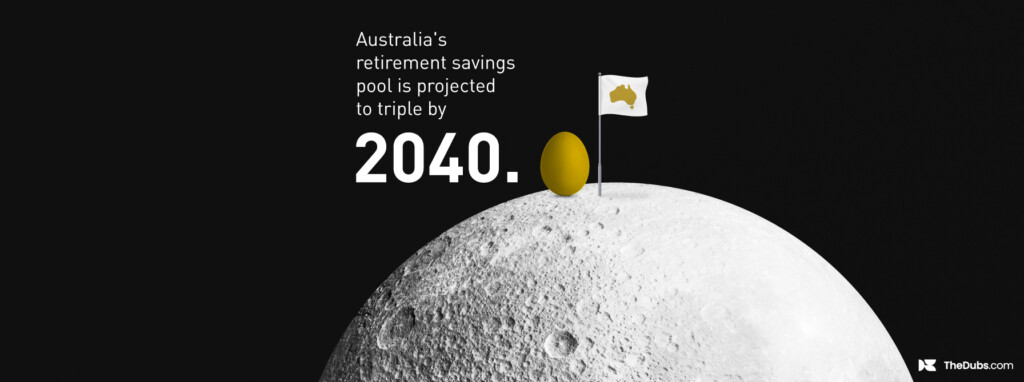Andrew Maloney launched Student Super after years of running youth-oriented businesses, having also had some less-than-optimal superannuation experiences of his own. Here he shares some insights into students and their super, some of which apply equally to their parents.
What’s the gap you’re aiming to fill with students and their superannuation?
The number one thing is young people get lots of casual jobs and build up very small super balances; meanwhile, the minimum fee for a super fund is usually around $150 or $200. If you only have $150 or $200 in your account, in a year’s time you’ll have nothing.
The second problem is that next Christmas they get a different job and end up in a different fund, which creates duplicate accounts.
The third one is insurance. We got a lot of feedback from parents saying, my kid’s had super for three years and we’ve only just now looked at their account and discovered they’re paying for life insurance and they’re 17! Some people argue it’s a good idea to have TPD at any age. And I say, it makes no sense if that’s contributing to the balance going to zero – then they don’t have a super fund or insurance. You have to structure the insurance so they can actually afford it.
How are you addressing these issues with student super?
Our number one feature is that we’re fee-free under $1000, and then between $1000 and $5000 we offer a 50% discount off the admin fee. So $78 becomes $39. It just helps them to build that early balance.
And education. At the moment, everything around super happens on the first day of a new job, and that’s the worst time to be thinking about lifelong financial decisions, whether you’re 15 or 55.
We encourage our members to turn up to their first day of work with the form already filled in. They’ve got to take control of that first day at work and know their right is to choose their super fund, understand their super and tax, and for a lot of people, that’s a big step forward.
What has your research shown about young Australians and their literacy around super?
University students know they’re meant to know about it. But it’s not taught at high school or at university. The research shows uni students have a massive knowledge gap – they don’t know what percentage [compulsory] superannuation is, they don’t know much about their rights or how easy it is to move a fund.
Uni students have a massive superannuation knowledge gap.
And the problem is parents and teachers don’t know much about it either. As a nation, we’re pretty bad at being on top of this. Between 55 and 65 you start to get good at it, but sub-50, most people are really bad.
We find a lot of kids aged around 25 will start to realise there’s serious money in their account, they’ll start to tidy up their super, and realise they’ve probably wasted a decade – we call it the lost decade, between 15 and 25.
We call it the lost decade, between 15 and 25.
How do you even get young people to take an interest in super when retirement’s so far off?
It’s phenomenally hard. It’s not just a young person thing, all of us are bad at delayed gratification.
In terms of us engaging students, the biggest thing is to make sure they realise it’s their money, that it’s like a bank account. When I present to groups of students, we talk about whether you’d pick up $50 if you dropped it on the ground. And of course, everyone would.
I say, well how come if you put $500 in a super account you’ll forget it, and let it go into lost super? And then they start to think.
I say, don’t feel bad – as a country we’ve dropped $17.5bn on the floor and not picked it up.
How do you market to this small, defined audience of teens and 20 somethings?
You won’t find us on TV, or in print.
We still believe talking face-to-face is of value, so we go to Orientation week. That way they’ve met someone and we’ve answered a few questions – it’s all about trust.
We do a ton of social. We get more people asking questions through Facebook than calling us, they don’t like talking on the phone very much.
We’re trying to do a bank of super educational videos with young people fronting the videos, talking to young people. They’re short videos, straight to the point.
And we’re also going to produce more helpful videos talking with young people on the street about how to get a job, how to do a good CV, how to get an internship or a summer job because they’re really keen to know how to get your first job.
We also do a lot of focus groups with uni students and we have a lot of young people – uni students – working in our office, so we’re surrounded by our market.
How could other super funds cater better to younger customers?
What makes it hard for big super funds is that some members have $50 in their account and some have half a million. And the half-a-million-dollar guys can leave and set up a self-managed super fund now very easily. So the impact on the organisation of one customer with half a million leaving is vastly more important than someone with $50 leaving.
If you’re running a big super fund, you’ve got this weight of money at the other end – the 50, 55, 60, 70 year-olds. I think it’s your duty to focus on these people – I would. It just happens that the unintended consequence is less focus on young members. Young people don’t really change the dial for a big super fund. It’s just how the industry is structured.









